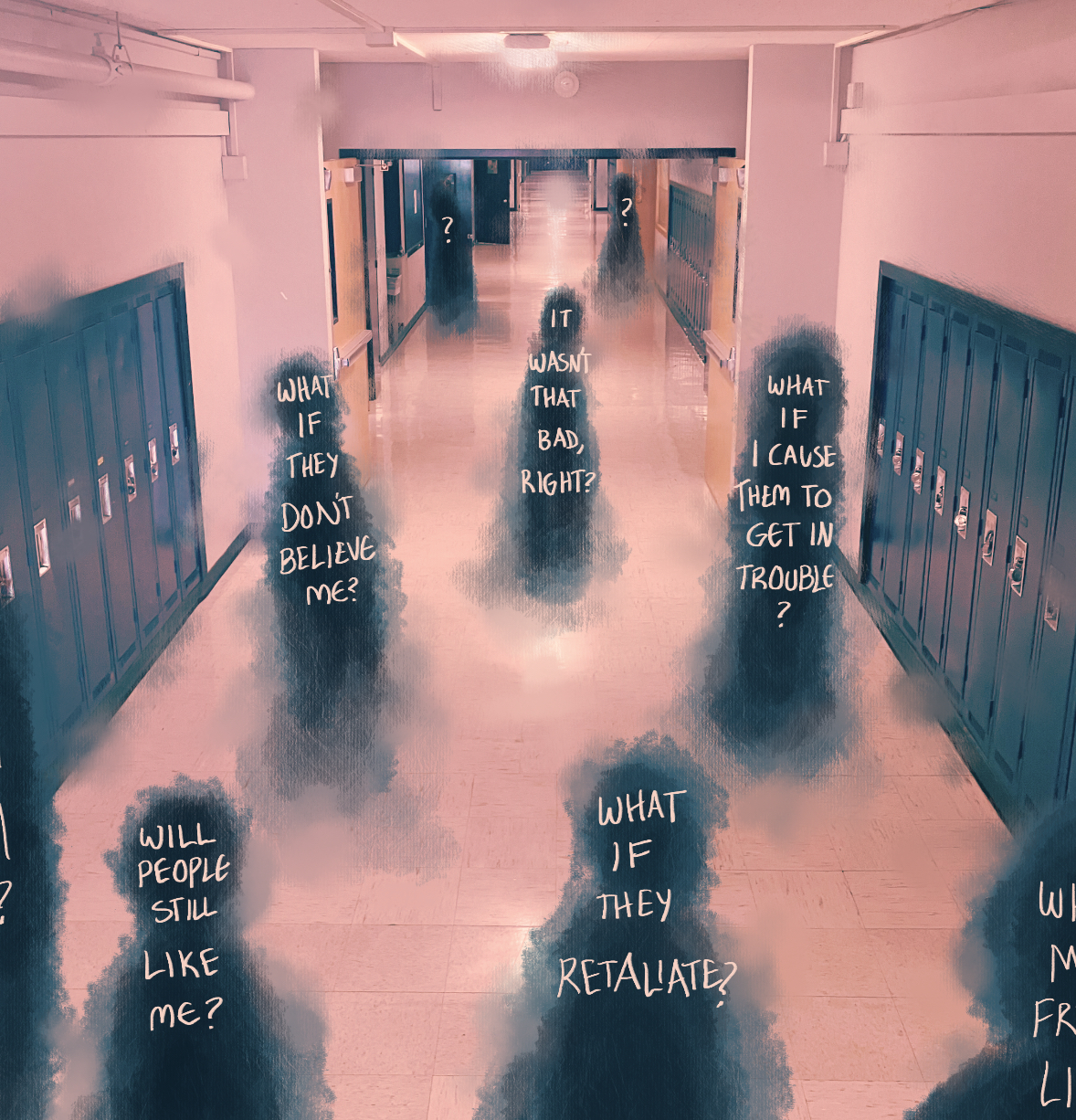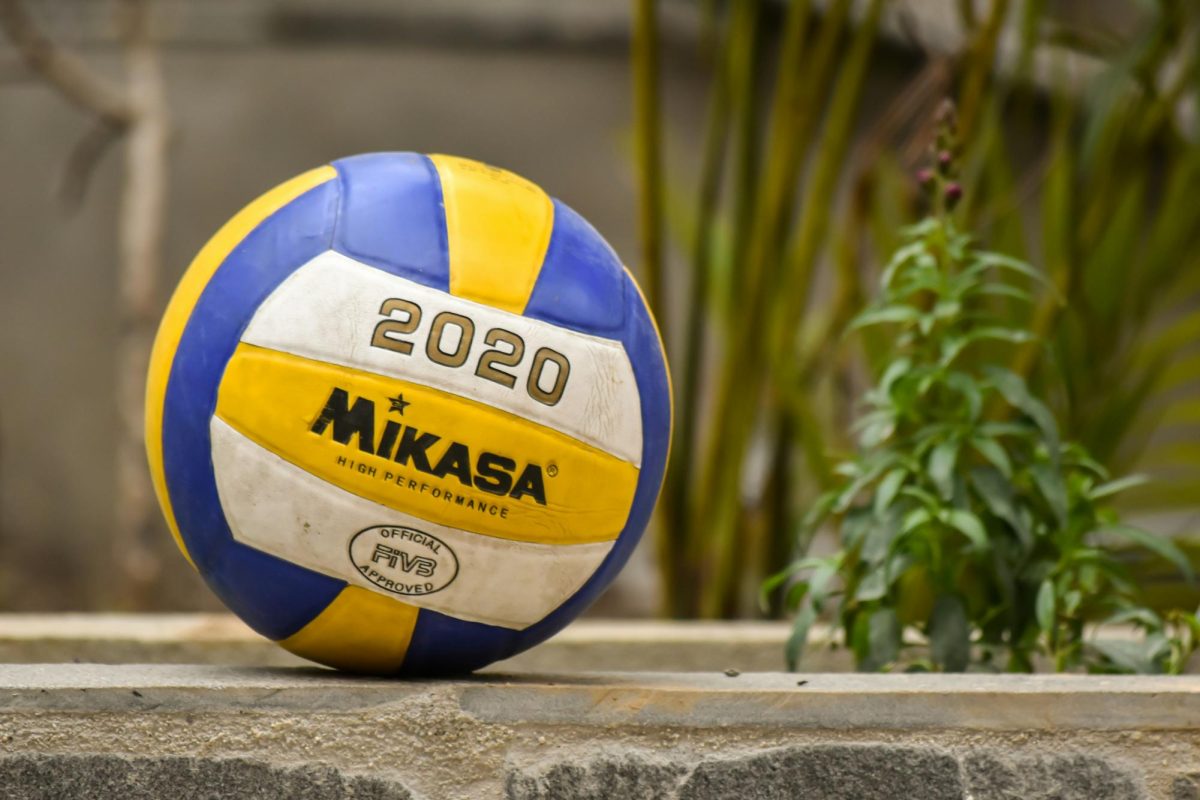Among the scrambling crowds in the school hallways, surrounded by people thinking about lunch or homework or gossip, many students carry the burden of their own secrets. Whether it’s physical, verbal, or sexual, harassment can pass around like a disease when it is given the opportunity to fester. Studies from before the pandemic showed that sexual violence in schools was on the rise, and the National Education Association reported almost 15,000 incidents in 2018 alone. Although the change in media perception and higher acceptance of victims may have dropped the number of sexual harassment cases in schools, that doesn’t account for the hundreds if not thousands of students that fail to come forward with their experiences.
But how can you report something? Former president Richard Nixon signed into law the Education Amendments of 1972, which is a set of amendments to several previously passed acts. The most well-known portion of these amendments is Title IX, a federal law that prohibits sex-based discrimination in schools that receive government funding. These rules’ primary goal is to give schools a legal obligation to respond to reports of harassment or discrimination based on gender.
“[Title IX] talks about equity in all different types of ways… The context of harassment and sexual violence is how most people think about it these days, but it actually means all kinds of things,” Linn Benton Community College Title IX Coordinator Jill Childress said. “Like with men and women’s sports—they have to have equal access to scholarships, funding, locker rooms, facilities, and things like that. If you have a nursing program that failed to admit qualified male students—it’s historically female dominated—that could be a Title IX issue. It’s not just for women or gender non-binary [people], it could be for men too if they’re in a minority situation.”
With April being Sexual Assault Awareness Month, it’s up to everyone to call out problematic habits they see people engaging in. Even the way you speak about others could be fanning the flames of a toxic environment. At WAHS, all teachers are mandatory reporters, but issues of discrimination or harassment should be taken to an administrator or the GAPS Title IX coordinator. You can make a report to a counselor or administrator, and they will follow up on your claim with an investigation.
“We will take a statement from a person making the report, and then we will—ideally—if there are witnesses that have overheard or saw things happen [to interview], that’s very helpful,” said principal Rich Engel. “We will interview the person that’s being accused of [the misbehavior] because everybody gets due process. Everybody has to have the opportunity to know what is being accused, and the opportunity to present their side of the story.”
In a high school, certain complaints can fall under illegal behavior if the victim was underage, in which case the school will hand the investigation over to the police.
“We don’t really investigate [the report] as a school if we know that there’s the potential that it is going to be criminal in nature,” said Engel. “And if we do our own investigation, then it can interfere with that.”
Because of the confidentiality of the investigation from both sides, the victim may not know what is happening with their case. The alleged perpetrator also has a right to confidentiality, so the school cannot report back to the victim on specific actions that have been taken. This can lead to discouragement and a lack of motivation to report problems.
“For sexual violence in particular, there’s a lot of barriers to reporting and I think that when you overlay that onto a high school dynamic, there’s even more,” said Childress. “Challenges can include wanting to still be ‘in’ with a peer group, not wanting to affect your image, or being worried about how it would affect relationships. I think people may [also] be afraid of retaliation, or they might not recognize [the harassment] for what it is. There’s a lot of different reasons that exist.”
Regardless of the factors causing them, the feelings of shame or hopelessness that victims experience discourage them from speaking out. The vicious cycle continues when a lack of accountability allows perpetrators to fall further into their negative habits.
“Sexual violence like sexual harassment, like stalking, like interpersonal relationship violence, are more prevalent than what we realize,” Childress said. “It is what I would call a public health issue… and it’s one that stems from things like not having healthy relationship dynamics, not understanding what consent is, and more of those baseline skills.”
Despite these barriers, it’s important to report sexual harassment even if it’s for people other than yourself. When a person comes forward, their case may not go anywhere, but the report will be filed and recorded along with the results of the investigation. Someone else could come forward in the future against the same person, and the previous claims made against that perpetrator would make the current case stronger. Still, it’s not always easy to come forward if you feel unsupported by the system, which is a problem. Do you feel like your community would still care for you if you took that kind of leap? As a school, we need to foster an environment where people feel safe sharing their experiences.
“I would love to see that younger people are starting to recognize and hold each other accountable,” said Childress, “just generally for how they’re behaving and treating one another to prove that this will help prevent more of this type of problematic behavior.”
There are multiple outlets for problematic behavior, and it isn’t always easy to take action against systems that aren’t under the school’s jurisdiction.
“I think, in all honesty, that with social media today that ends up becoming the primary source of harassment,” said Engel. “It’s so tough to monitor it, to shut it down. Like the West Albany Confessions [now deleted Instagram page], every time we report it to Instagram but sometimes they take it down, sometimes they don’t.”
Social media is one facet of the problem, but it doesn’t begin to cover the extent of the problematic culture at West Albany. We have a responsibility as a community to report and go after incidents rather than covering them up or avoiding the problem to minimize effort. If you won’t do it for yourself, do it for someone else, and create the school we all would rather live in.





